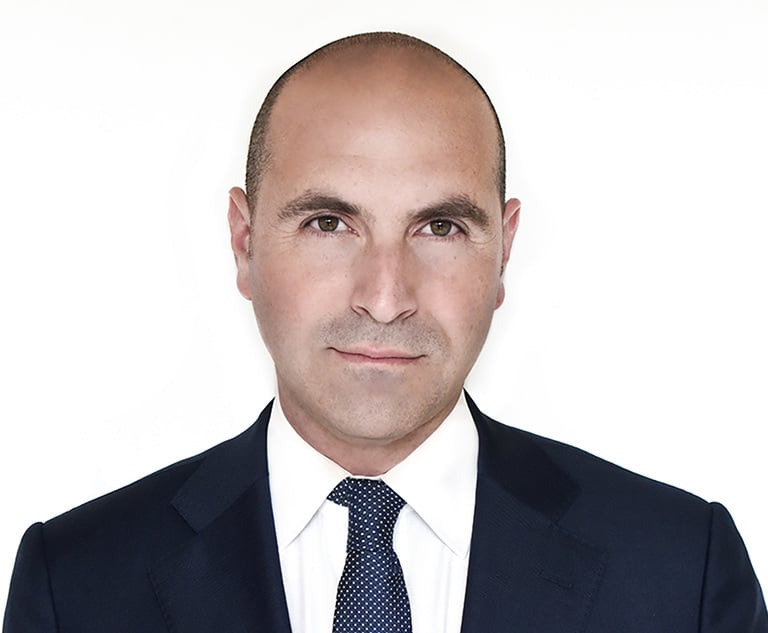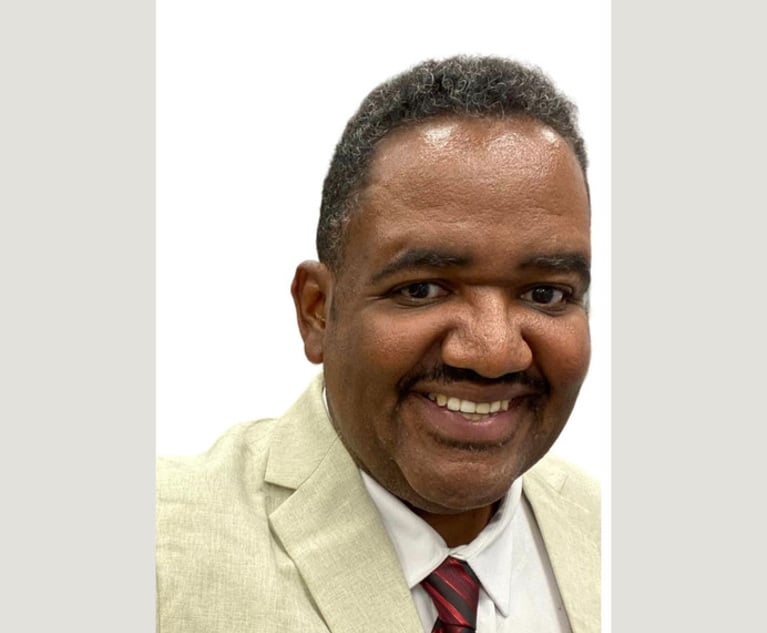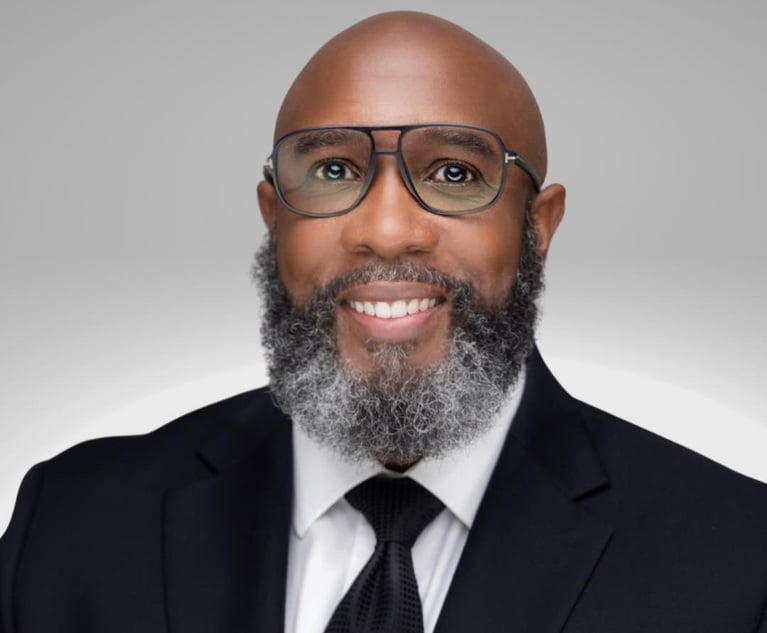 Broward Circuit Judge Jose Izquierdo. Photo: J. Albert Diaz/ALM
Broward Circuit Judge Jose Izquierdo. Photo: J. Albert Diaz/ALM'A Foreign Thing': How Judge Jose Izquierdo Brings Dependency Court to the Seminole Tribe
“We've never gotten around to developing the trial court,” said Stan Wolfe, administrative director of the Seminole Tribal Court.
August 10, 2018 at 01:15 PM
6 minute read
When he crosses the wide gates that separate the Seminole Tribe of Florida's headquarters from Hollywood, Judge Jose Izquierdo is only minutes from the main courthouse in Fort Lauderdale.
But in many ways, he's a world away.
On the tribe's reservation set back from a busy city street, he's an outsider — and one of only a few people with the inside knowledge to help the tribe accomplish a necessary task.
Izquierdo is a Broward circuit judge, where he has sat since 2016, and serves in the dependency division. He presides over cases of alleged child abuse or neglect, and makes daily rulings that affect the lives of children whose parents are either unable or unwilling to provide care.
For the last year, he has been both teacher and student serving a tribe with a rich history and troubling past with the federal and state government.
Every 60 days after handling his regular Friday docket, the judge picks up his laptop, scheduler and case files, and heads to the tribe's administrative office.
“I take my robe,” he said. “I usually pack it all up.”
Sometimes, he stops for lunch along the way because he'll spend the afternoon hearing up to a dozen cases involving Seminole children. On one of the top floors of the tribe's office tower, Izquierdo presides in the presence of a panel of Native American judges, judicial staff and court reporters. The idea is for mutual feedback: He teaches them how to run a Western-style dependency court, and they educate him on Seminole laws and traditions.
 Chief Judge Moses Osceola, Seminole Tribal Court. Photo: J. Albert Diaz/ALM
Chief Judge Moses Osceola, Seminole Tribal Court. Photo: J. Albert Diaz/ALM
“It's been kind of a unique relationship,” Seminole Tribal Court Chief Judge Moses Osceola said. “'He teaches us the traditional court system ways, and we can help him with some of the traditional Indian thinking.”
The Seminole Tribe is a sovereign nation, but it must still abide by U.S. rules under Public Law 280, which gives the federal government jurisdiction over criminal and civil matters on Indian reservations.
The Seminole Tribe gained recognition from the federal government in 1957 and has since created a tribal council and formal system of government. Its leaders launched a dispute-resolution center and signed an ordinance in 2011 to develop a court of civil jurisdiction. State and federal courts still handle criminal cases, which are often more expensive.
 Stan Wolfe, Seminole Tribal Court director.
Stan Wolfe, Seminole Tribal Court director.
“With a lot of the tribes out there, a court as you know it is a foreign thing,” said Stan Wolfe, a Cherokee attorney from North Carolina who moved to Florida in 2005 to help the Seminoles establish a formal judiciary.
Although the tribe had a police force, it had no formal prosecution and law enforcement system.
“We've never gotten around to developing the trial court,” Wolfe said.
This content has been archived. It is available through our partners, LexisNexis® and Bloomberg Law.
To view this content, please continue to their sites.
Not a Lexis Subscriber?
Subscribe Now
Not a Bloomberg Law Subscriber?
Subscribe Now
NOT FOR REPRINT
© 2025 ALM Global, LLC, All Rights Reserved. Request academic re-use from www.copyright.com. All other uses, submit a request to [email protected]. For more information visit Asset & Logo Licensing.
You Might Like
View All
Growing Referral Network, Alternative Fees Have This Ex-Big Law’s Atty’s Bankruptcy Practice Soaring
5 minute read
Against the Odds: Voters Elect Woody Clermont to the Broward Judicial Bench
4 minute read
Miami Civil Judge Myriam Lehr to Say Goodbye to the County Court Bench
4 minute readTrending Stories
- 1'Pull Back the Curtain': Ex-NFL Players Seek Discovery in Lawsuit Over League's Disability Plan
- 2Tensions Run High at Final Hearing Before Manhattan Congestion Pricing Takes Effect
- 3Improper Removal to Fed. Court Leads to $100K Bill for Blue Cross Blue Shield
- 4Michael Halpern, Beloved Key West Attorney, Dies at 72
- 5Burr & Forman, Smith Gambrell & Russell Promote More to Partner This Year
Who Got The Work
Michael G. Bongiorno, Andrew Scott Dulberg and Elizabeth E. Driscoll from Wilmer Cutler Pickering Hale and Dorr have stepped in to represent Symbotic Inc., an A.I.-enabled technology platform that focuses on increasing supply chain efficiency, and other defendants in a pending shareholder derivative lawsuit. The case, filed Oct. 2 in Massachusetts District Court by the Brown Law Firm on behalf of Stephen Austen, accuses certain officers and directors of misleading investors in regard to Symbotic's potential for margin growth by failing to disclose that the company was not equipped to timely deploy its systems or manage expenses through project delays. The case, assigned to U.S. District Judge Nathaniel M. Gorton, is 1:24-cv-12522, Austen v. Cohen et al.
Who Got The Work
Edmund Polubinski and Marie Killmond of Davis Polk & Wardwell have entered appearances for data platform software development company MongoDB and other defendants in a pending shareholder derivative lawsuit. The action, filed Oct. 7 in New York Southern District Court by the Brown Law Firm, accuses the company's directors and/or officers of falsely expressing confidence in the company’s restructuring of its sales incentive plan and downplaying the severity of decreases in its upfront commitments. The case is 1:24-cv-07594, Roy v. Ittycheria et al.
Who Got The Work
Amy O. Bruchs and Kurt F. Ellison of Michael Best & Friedrich have entered appearances for Epic Systems Corp. in a pending employment discrimination lawsuit. The suit was filed Sept. 7 in Wisconsin Western District Court by Levine Eisberner LLC and Siri & Glimstad on behalf of a project manager who claims that he was wrongfully terminated after applying for a religious exemption to the defendant's COVID-19 vaccine mandate. The case, assigned to U.S. Magistrate Judge Anita Marie Boor, is 3:24-cv-00630, Secker, Nathan v. Epic Systems Corporation.
Who Got The Work
David X. Sullivan, Thomas J. Finn and Gregory A. Hall from McCarter & English have entered appearances for Sunrun Installation Services in a pending civil rights lawsuit. The complaint was filed Sept. 4 in Connecticut District Court by attorney Robert M. Berke on behalf of former employee George Edward Steins, who was arrested and charged with employing an unregistered home improvement salesperson. The complaint alleges that had Sunrun informed the Connecticut Department of Consumer Protection that the plaintiff's employment had ended in 2017 and that he no longer held Sunrun's home improvement contractor license, he would not have been hit with charges, which were dismissed in May 2024. The case, assigned to U.S. District Judge Jeffrey A. Meyer, is 3:24-cv-01423, Steins v. Sunrun, Inc. et al.
Who Got The Work
Greenberg Traurig shareholder Joshua L. Raskin has entered an appearance for boohoo.com UK Ltd. in a pending patent infringement lawsuit. The suit, filed Sept. 3 in Texas Eastern District Court by Rozier Hardt McDonough on behalf of Alto Dynamics, asserts five patents related to an online shopping platform. The case, assigned to U.S. District Judge Rodney Gilstrap, is 2:24-cv-00719, Alto Dynamics, LLC v. boohoo.com UK Limited.
Featured Firms
Law Offices of Gary Martin Hays & Associates, P.C.
(470) 294-1674
Law Offices of Mark E. Salomone
(857) 444-6468
Smith & Hassler
(713) 739-1250







